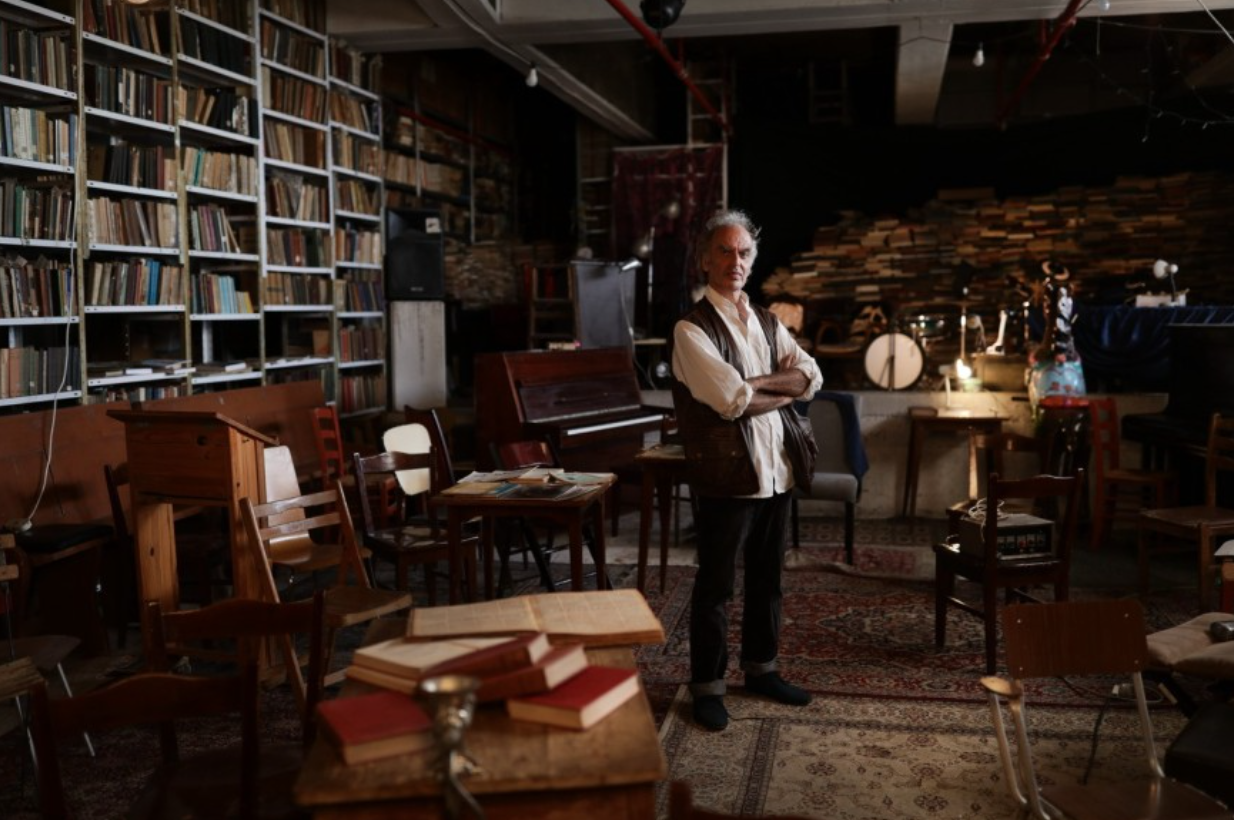Hidden on the fifth floor of a colossal, decrepit Tel Aviv bus station, there’s a little Yiddish library. It’s a dimly-lit, heimish (homey) place with a palpable warmth. Upon entering, you’re greeted with a mass of Yiddish manuscripts, some lining shelves, others piled messily on top of one another. There’s a drum kit on stage, kept company by an electric guitar, two pianos, a microphone, and various percussion instruments. It’s as if a Polish shtetl and a Rolling Stones concert crashed splendidly in this tiny harbor of culture, creating a comfortable dissonance.
The library’s owner, with his wispy white hair, is somewhat of a human archive; history seeps through him. He is light on his feet, not pacing, but prancing. When I went to see him speak, his body did as much talking as his voice. He switched seamlessly between languages when he serenaded my group with a Yiddish love song.
He explained to us that Yiddish and its survival is, simply put, a miracle. Yiddish is dissonant, both in its sound and in its origins, an unlikely combination of German and Hebrew, of European and semitic languages. Yiddish endured the Holocaust, albeit barely, which wiped out many millions of speakers. Years later, Yiddish prevailed once again, surviving Israel’s attempt to make Hebrew the only Jewish vernacular.
In this little historical oasis, surrounded by my ancestors’ writing, I came to see Yiddish as a rich metaphor for life. It captures so much of what it means to be human because it contains a multitude of human experiences. It’s thoroughly imbued with the tragedies and triumphs of generations of Jews.
So I’m leaving this summer with a new and profound appreciation for language. I am now more alert to the deep import that punctures our words, and the inherent weight that they all hold. Mostly, I am grateful that I could sit in a dissonant library, listening to a love song in a dissonant language, completely oblivious to its translation, and find it beautiful. Sometimes it’s not the meaning of words that we must cherish, but the mere fact that they’re being spoken.
https://k-larevue.com/en/mendy-cahan-or-the-secret-yiddish-shelter-of-tel-aviv/






